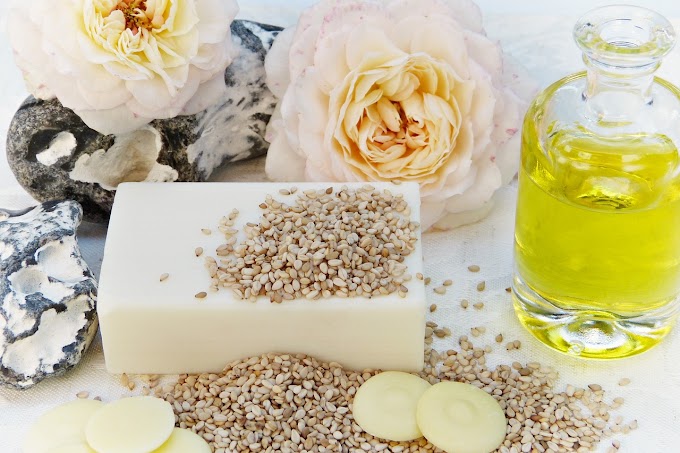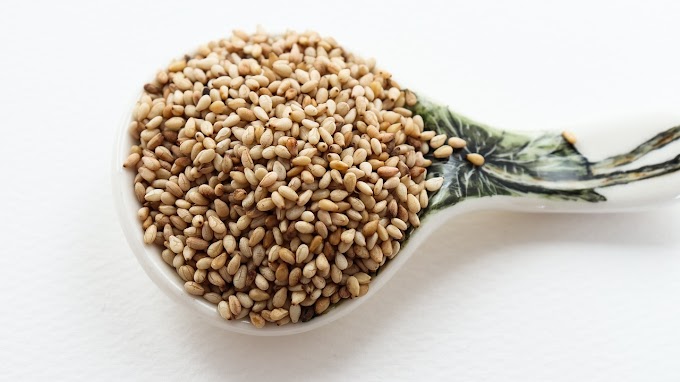Introduction
Ayurveda, an ancient Indian healing system, stands out in the world of conventional pharmaceuticals for its holistic approach, emphasizing the use of natural herbs and remedies for overall well-being. Shatavari, scientifically known as Asparagus racemosus and often referred to as the "Ruler of Herbs" in Ayurveda, has garnered significant attention for its diverse health benefits, particularly in women's health. |
| Shatavari |
Roots and Growth:
Shatavari, native to the Indian subcontinent, belongs to the Asparagus family, characterized by its long, tuberous roots and fluffy foliage. In Ayurveda, the roots of the Shatavari plant are predominantly used for therapeutic purposes.
Ayurvedic Properties:
According to Ayurveda, each herb possesses unique combinations of doshas (bio-energies) and tastes. Shatavari is classified as having sweet and bitter tastes, making it effective in alleviating both Vata and Pitta doshas. Its cooling and nourishing qualities make it essential for balancing the mind and body.
Benefits of Shatavari:
Women's Well-being: Shatavari is renowned for supporting women's health by alleviating menstrual discomfort, regulating menstrual cycles, managing menopausal symptoms, enhancing fertility, and promoting lactation in nursing mothers.
Digestive Health: Shatavari soothes and strengthens the digestive system, aiding in conditions like acidity, ulcers, and indigestion by promoting healthy mucus production in the stomach.
Immune Support: The herb's immune-boosting properties are attributed to its ability to nourish the body and enhance vitality, building resistance against common infections and diseases.
Stress and Anxiety: Considered an adaptogen, Shatavari helps the body adapt to stress, reduce anxiety, and promote better sleep.
Anti-Inflammatory: Shatavari's anti-inflammatory properties make it beneficial in managing conditions like arthritis and other inflammatory disorders.
Antioxidant Effects: Rich in antioxidants, Shatavari helps protect cells from oxidative damage, potentially slowing the aging process.
How to Use Shatavari:
Shatavari is available in various forms, including powders, capsules, and liquid extracts. It can be incorporated into daily routines by mixing the powder with warm milk or water, taking capsules as recommended by an Ayurvedic professional, or adding a few drops of the liquid extract to beverages or herbal teas.
Cultivation and Sustainability:
Understanding the growth of Shatavari is crucial for ensuring its availability and sustainability. Traditionally grown in well-drained soil in tropical regions of India, sustainable farming practices, including organic cultivation and mindful harvesting methods, are now employed in Ayurvedic farms.
Traditional Wisdom and Modern Science:
While Ayurvedic practitioners have valued Shatavari for centuries, modern science is increasingly recognizing its pharmacological properties, highlighting its antioxidant, anti-inflammatory, and immunomodulatory effects. This convergence of traditional wisdom and scientific inquiry underscores the herb's credibility as a potent natural remedy.
Ayurvedic Formulations:
Shatavari rarely acts alone in Ayurvedic treatments, often playing a crucial role in complex formulations called Rasayanas. These formulations combine various herbs to enhance Shatavari's effectiveness and address specific health concerns, emphasizing a holistic approach to healing.
Dosage and Safety Considerations:
While generally safe for most individuals, it is essential to consult an Ayurvedic professional or healthcare provider before using Shatavari, especially if pregnant, nursing, or taking medications. Personalized guidance on the appropriate dosage and duration of use based on specific health needs can be provided.
Culinary and Cultural Significance:
Beyond its medicinal applications, Shatavari holds culinary value in some regions. Its tender shoots are occasionally used in traditional Indian dishes. Additionally, the herb's cultural significance is reflected in its association with fertility and vitality, making it a symbol of life and abundance in certain ceremonies and rituals.
Environmental Impact:
As the demand for Shatavari increases, understanding its environmental impact is crucial. Sustainable cultivation practices, such as agroforestry and permaculture, are being explored to minimize the ecological footprint and preserve biodiversity. Responsible sourcing and cultivation can contribute to long-term environmental health.
Traditional Practices and Rituals:
In Ayurveda, Shatavari is not only utilized for physical well-being but also plays a role in spiritual practices. Traditional rituals may involve the use of Shatavari to enhance meditation, promote emotional balance, and connect individuals with the natural elements, emphasizing the holistic nature of Ayurvedic healing.
Scientific Research:
Continued scientific research on Shatavari is shedding light on its potential applications and mechanisms of action. Studies have explored its impact on hormonal balance, and reproductive health, and its potential as an adjunct therapy for certain medical conditions. This intersection of traditional knowledge and modern research contributes to a more comprehensive understanding of Shatavari's therapeutic potential.
Global Recognition:
While Ayurveda originated in India, Shatavari and other Ayurvedic herbs are gaining global recognition. Wellness enthusiasts and practitioners worldwide are increasingly incorporating Ayurvedic principles into their lifestyles, contributing to the popularity of herbs like Shatavari beyond traditional cultural boundaries.
Holistic Wellness Practices:
The inclusion of Shatavari in holistic wellness practices extends beyond Ayurveda. Integrative medicine approaches often incorporate Ayurvedic principles, emphasizing personalized health plans that consider physical, mental, and emotional aspects. Shatavari's adaptogenic and balancing properties align with the holistic wellness philosophy, making it a valuable addition to comprehensive health strategies.
Collaboration with Conventional Medicine:
In some cases, Shatavari is being explored in collaboration with conventional medicine. Integrative healthcare practitioners may recommend Shatavari alongside allopathic treatments to enhance overall well-being, manage side effects, or support specific health goals. This collaborative approach acknowledges the potential synergies between traditional and modern medical practices.
Patient Education and Empowerment:
Empowering individuals with knowledge about herbal remedies like Shatavari is integral to their well-being. Patient education on Ayurvedic principles, proper usage, and potential interactions can foster informed decision-making. Integrating such traditional wisdom into mainstream healthcare discussions enhances the patient's active role in their health journey.
Government Regulations and Quality Assurance:
Given the growing popularity of Ayurvedic herbs, including Shatavari, governments are increasingly recognizing the need for regulations to ensure quality, safety, and efficacy. Establishing standards for cultivation, processing, and labeling helps consumers make informed choices and promotes responsible practices within the herbal supplement industry.
Continued Exploration and Innovation:
The dynamic landscape of health and wellness encourages ongoing exploration and innovation. Researchers and practitioners alike continue to delve into the potential applications of Shatavari, pushing the boundaries of traditional knowledge and fostering a collaborative approach between Ayurveda and modern medicine.
Community Involvement and Ethical Sourcing:
Sustainable practices extend beyond cultivation to community involvement and ethical sourcing. Supporting local communities involved in Shatavari cultivation and ensuring fair trade practices contribute to the well-being of both consumers and producers, fostering a sense of global responsibility.
Inclusion in Lifestyle Products:
As awareness of Shatavari's benefits grows, it finds its way into a variety of lifestyle products. From herbal teas and wellness tonics to skincare and beauty formulations, Shatavari's diverse applications highlight its versatility beyond traditional medicinal use.
Conclusion:
Shatavari's significance in Ayurveda extends beyond being just a herb; it symbolizes the profound connection between nature, health, and spiritual well-being. Its enduring reputation reminds us of the profound wisdom inherent in traditional medicine systems. By embracing the holistic approach of Ayurveda and incorporating Shatavari into our lives, we can tap into the timeless wisdom of nature to promote physical, mental, and emotional well-being. Whether exploring Ayurveda for the first time or continuing the journey, Shatavari is an herbal ally worth discovering and integrating into the daily routine for a healthier, more balanced life.
FAQ's
1. What does the name "Shatavari" mean in Sanskrit?The name "Shatavari" translates to "he who has a hundred spouses" in Sanskrit, highlighting its association with women's health and vitality.
2. How is Shatavari used in traditional Indian dishes?
2. How is Shatavari used in traditional Indian dishes?
Shatavari's tender shoots are occasionally used in traditional Indian dishes, adding a unique flavor and nutritional value to culinary preparations.
3. Can men benefit from Shatavari as well?
3. Can men benefit from Shatavari as well?
While Shatavari is celebrated for its impact on women's health, it also offers benefits for men. Its adaptogenic properties, immune support, and anti-inflammatory effects contribute to overall well-being.
4. Is Shatavari safe during pregnancy and lactation?
4. Is Shatavari safe during pregnancy and lactation?
It's essential to consult with an Ayurvedic professional or healthcare provider before using Shatavari during pregnancy or while breastfeeding. They can provide personalized guidance on safety and appropriate dosage.
5. How does Shatavari contribute to environmental sustainability?
5. How does Shatavari contribute to environmental sustainability?
Sustainable cultivation practices, including organic farming and mindful harvesting, are crucial for preserving Shatavari's availability and minimizing its environmental impact.
6. Can Shatavari be used in conjunction with conventional medicine?
6. Can Shatavari be used in conjunction with conventional medicine?
Integrative healthcare practitioners may recommend Shatavari alongside conventional treatments, emphasizing the potential synergies between traditional and modern medical practices. However, it's essential to inform healthcare providers of all supplements being taken.
7. What are Rasayanas in Ayurveda, and how do they relate to Shatavari?
7. What are Rasayanas in Ayurveda, and how do they relate to Shatavari?
Rasayanas are complex formulations in Ayurveda that combine different herbs to enhance their effectiveness. Shatavari often plays a crucial role in Rasayanas, contributing to a holistic approach to healing.
8. Are there any known side effects of Shatavari?
8. Are there any known side effects of Shatavari?
While Shatavari is generally considered safe, individual responses may vary. Consulting with an Ayurvedic professional or healthcare provider can help assess any potential side effects or interactions with existing medications.
9. Can Shatavari be used for mental well-being?
9. Can Shatavari be used for mental well-being?
Yes, Shatavari is considered an adaptogen, aiding the body in adapting to stress, reducing anxiety, and promoting better sleep, which contributes to overall mental well-being.
10. How can consumers ensure the quality of Shatavari products?
10. How can consumers ensure the quality of Shatavari products?
Look for products from reputable sources that adhere to government regulations and quality standards. Understanding the cultivation and processing practices, as well as opting for ethically sourced and sustainably produced products, can contribute to ensuring quality.
11. Can Shatavari be used for skincare?
11. Can Shatavari be used for skincare?
Shatavari's antioxidant properties make it a potential ingredient in skincare products. However, the effectiveness may vary, and it's advisable to choose products specifically formulated for skincare use.
12. How can one incorporate Shatavari into their daily routine?
12. How can one incorporate Shatavari into their daily routine?
Shatavari is available in various forms such as powders, capsules, and liquid extracts. It can be added to warm milk, water, or herbal teas, taken in capsule form as recommended by an Ayurvedic professional or added to beverages for convenient consumption.
13. Does Shatavari have a global presence?
13. Does Shatavari have a global presence?
Yes, Shatavari and other Ayurvedic herbs are gaining recognition globally. Wellness enthusiasts worldwide are increasingly adopting Ayurvedic principles, contributing to the popularity of herbs like Shatavari beyond traditional cultural boundaries.
14. How does Shatavari contribute to spiritual practices in Ayurveda?
14. How does Shatavari contribute to spiritual practices in Ayurveda?
Shatavari is believed to enhance meditation, promote emotional balance, and connect individuals with natural elements, making it a valuable component in certain spiritual practices within Ayurveda.
15. Are there ongoing research initiatives on Shatavari?
15. Are there ongoing research initiatives on Shatavari?
Yes, scientific research on Shatavari continues, exploring its potential applications, mechanisms of action, and therapeutic benefits. This ongoing research contributes to a deeper understanding of Shatavari's role in health and wellness.







